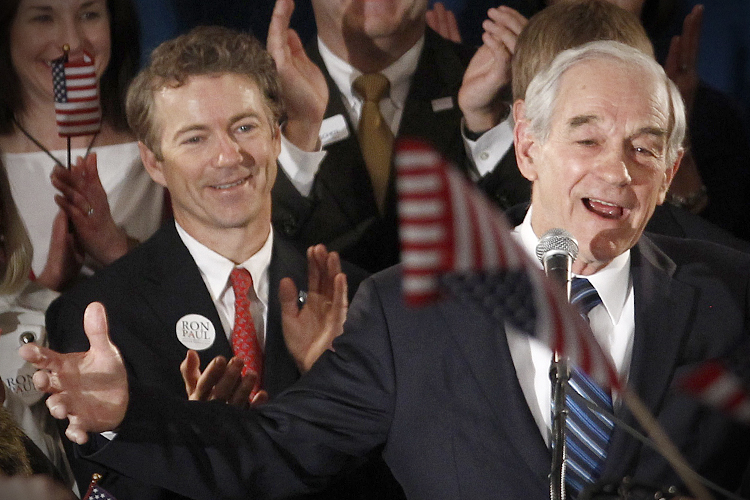Kansas’ latest effort to promote discrimination against gays has managed to reopen discussions about the nature of the state’s role in so-called private discrimination. Although conservatives and libertarians like to pretend economic discrimination does not involve state action, the reality is that the state is almost always involved as the background enforcer of such discrimination.
To understand why this is true, a short jaunt through our country’s history is necessary. For a long time in this country, white homeowners in a neighborhood would place racially restrictive covenants on their houses to prevent the houses from being sold to non-white people down the line. In 1948, the Supreme Court ruled in Shelley v. Kraemer that courts could not enforce these racially restrictive housing covenants, effectively neutering them as binding contractual instruments.
The most interesting thing about the Shelley case is the reasoning the Supreme Court used to arrive at its decision. On first glance, the decision might seem a bit strange. Why can’t a group of private white citizens come together and make private agreements with one another to not sell their homes to non-whites? What’s unconstitutional about that? That’s just freedom and liberty, isn’t it?
Indeed, the court explicitly held that the agreements are themselves constitutional. The problem is that the agreements do not enforce themselves. It is the state, through its court system and the police, that is charged with actually booting out a black person who comes into ownership of a house in violation of a racially restrictive covenant. And when the state acts as the enforcer of the covenant, that enforcement action involves racially discriminatory state action that violates the Constitution.
Although later courts weaseled out of it somewhat, the reasoning in Shelley is profoundly insightful. Things we often call private discrimination aren’t actually very private at all. The state, either by threatening force or actually using it, is the muscle that actually carries out most of the “private” economic discrimination in our society.
This fact is important to remember as the state of Kansas considers enshrining into its law the right of public accommodations like hotels, movie theaters and restaurants to discriminate against couples in same-sex marriages. Under this law, a manager who spotted a same-sex marriage party dining at his restaurant is empowered to refuse them service and demand that they leave.
In his never-ending quest to be on the wrong side of history on all things LGBT civil rights, Tim Carney of the Washington Examiner took to Twitter to defend this legislation, perhaps hoping that he will get a mention in future documentaries about the bigotry of this period.
Carney’s reasoning for why the state should empower this kind of public accommodation discrimination draws deeply upon his inner college freshman. He remarks that he is the defender of liberty and he just wants to get the state out of forbidding things.
But as the Shelley case so beautifully attests, this plea is totally incoherent. When you think for a second about what it takes to enforce, for instance, a restaurateur’s decision to kick a wedding party out of a restaurant because they are gay, you realize it is state enforcement action that we are talking about. In reality, Carney is proposing that the state delegate to anti-gay restaurateurs the power to direct the state’s police forces against people solely because those people are gay.
Suppose a gay wedding party goes into a restaurant, sits down, and prepares to order. The restaurant manager comes over and tells them that they must leave because they are gay. Angered by this bigotry, the patrons refuse to leave. Now ask yourself: What happens next?
In Carney’s world, what happens is the manager calls the state on the phone and requests that they send some enforcers to the restaurant to physically restrain these people, put them in police cars and then dump them into cages we call jail cells. This is the world of liberty in which the state stays out of things, according to Carney.
But we can imagine another world. In this other world, the manager also calls the state on the phone and asks the state to remove people from the restaurant on account of their being gay. But this time the state declines, remarking that it is the policy of the state not to mobilize its violent police powers to expel gays from public accommodations. This is the world of the statist destruction of liberty, under Carney’s taxonomy.
Since it is the state that is ultimately tasked to bring out the violent enforcers who effectuate the discriminating intents of public accommodations providers, the state literally cannot get out of the way. It will either grant to public accommodations the right to direct the state’s violence against people solely because they are gay or it will not. In constructing when and under what circumstances it will permit people to be expelled from restaurants, the state is making a decision about when and how it is willing to mobilize itself as a violent enforcer.
There is nothing in the concept of liberty that requires the state to become the enforcing agent of a discriminatory restaurateur. On the contrary, mobilizing its violence to carry out discriminatory whims against a party of people violates both the negative and positive liberty of that party. As Vladimir Lenin once retorted, the question is not whether you support freedom or not; rather, the question is freedom “for whom? to do what?” When a state declares that it will not enforce the discriminatory whims of hotels and restaurants, it is declaring that it respects freedom for LGBT to travel and dine like the rest of us.

